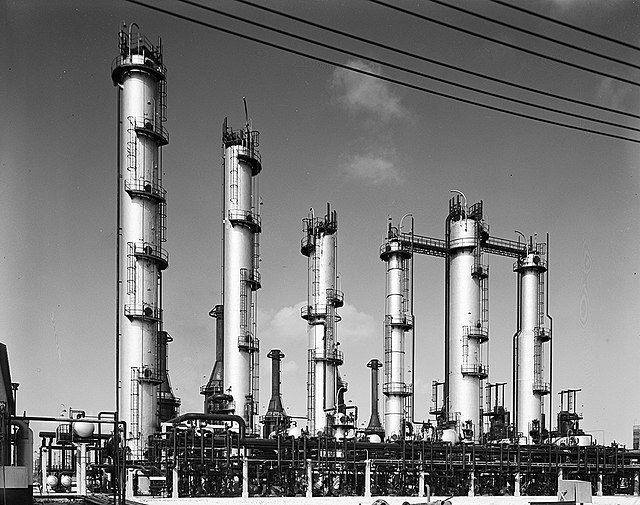Ohio Train Derailment: The Effects of Deregulation on the Environment
- Isabel Kagoo
- Mar 24, 2023
- 4 min read
Overview of the Situation
On February 3rd, a Norfolk Southern train carrying hazardous substances ran off course in East Palestine, Ohio. The train, heading from Conway, Pennsylvania to Madison, Illinois, derailed in the small Ohio town of about 4,800 residents along the Pennsylvania border. Although, according to a report by the US Environmental Protection Agency, most of the train cars were carrying nonhazardous cargo, around twenty cars contained hazardous materials including around eleven that were derailed in the accident. Following the derailment, a fire ensued and authorities were concerned that the hazardous substances could result in a deadly explosion. Moreover, the decision was reached by Norfolk Southern and various government entities to conduct a controlled release and burn-off of some of the train’s chemical cargo.
Pictures of the chemical release showed clouds of black smoke evident from miles away. This was done to ensure that the toxic substances did not cause a massive explosion and to limit further contamination. Although no one was injured during the derailment, officials ordered a mandatory evacuation during the controlled burning as dangerous chemicals were released. Ohio Governor Mike DeWine told residents that leaving was “a matter of life and death”. After the fire was finally extinguished on February 8th and air quality was tested and deemed safe, the evacuation order was lifted and residents were able to return to the community.
Effects on the Environment and Community
The residents of East Palestine fear that the derailment and release of toxic chemicals will have long-term ramifications on their health and environment. Many residents have already complained of headaches, rashes, and other symptoms of chemical exposure, especially as the pungent smell of chemicals persists. While officials have argued that the odors do not indicate contamination, the residents of East Palestine have remained skeptical, questioning the air quality and safety of tap water consumption.
It is also important to note that according to the Ohio Department of Natural Resources, the “contaminants spilled into some waterways and affected about seven and a half miles of stream” and killed over 40,000 aquatic animals. State and federal officials have continued to stress that the municipal water is safe due to testing. The EPA has also extensively monitored possible air pollutants at various outdoor and indoor locations. However, numerous experts such as Murray McBride, a soil and environmental chemist and an emeritus professor at Cornell University, have argued that more tests need to be done to effectively understand the effects on soil deposits and long-term air and water quality.
There is a general sense of mistrust towards public officials, the government, and Norfolk Southern by East Palestine residents stemming from the lack of answers to lingering questions about the long-term ramifications of the derailment. The residents do not believe that the government is doing enough to ensure that their community and health are being prioritized and have turned to independent tests to verify the threat level of the chemicals. Berresford, a resident, stated “All summer and winter I eat off my garden, but they just buried that toxic stuff and now the company nor the EPA will test my soil, that’s what drives me nuts. I paid $400 for an independent test but that’s just for four chemicals … that’s a lot of money for me and everyone in this town.” Many share in this sentiment and want proof that their health is not in jeopardy. These residents are currently suing Norfolk Southern in an effort to cover the costs of medical tests and long-term treatment.
Who is Responsible?
A report by the National Transportation Safety Board stated that it was an undetected overheated wheel bearing that caused the derailment. When pressed about the current safety systems, NTSB chair Jennifer Homendy argued that such systems were set by Norfolk Southern and not by government regulations. It is also important to note that because most of the rail cars were carrying non-hazardous materials, Norfolk Southern was not subject to laws that would have compelled them to notify Ohio officials of the train's contents. Governor DeWine argued for increased regulations, and said “We should know when we have trains carrying hazardous material that are going through the state of Ohio.”
The push for increased regulations occurred following a similar derailment in New Jersey in 2012. The incident sparked legislation under the Obama administration which implemented further regulation of the rail industry, particularly over high-hazard flammable trains and how they handle the transportation of toxic materials. The rule was repealed in 2018 under the Trump Administration along with other numerous freight railroad regulations and Obama-era safety protocols. Although it is difficult to determine if the changes in these specific regulations would have had an effect on the derailment of the Norfolk Southern train, it is evident that increased federal regulation is necessary in order to prevent such incidents and protect the health of individuals and the environment.
Conclusion
In the weeks following the derailment, new federal regulations were introduced in legislation cosponsored by Ohio Senators Sherrod Brown and JD Vance. The Railway Safety Act of 2023 outlines new requirements for trains carrying hazardous cargo including additional emergency plans and necessary communication about the train route prior to departure. Senator Brown stated, “Rail lobbyists have fought for years to protect their profits at the expense of communities like East Palestine and Steubenville and Sandusky. These commonsense bipartisan safety measures will finally hold big railroad companies accountable, make our railroads and the towns along them safer, and prevent future tragedies, so no community has to suffer like East Palestine again.” Reports have indicated that over twenty-five million Americans are vulnerable to deadly train derailments. Furthermore, it is imperative that regulations are created, implemented, and amended so that the health and safety of communities, people, and wildlife around the country are not jeopardized for the capitalistic interests of big corporations.



